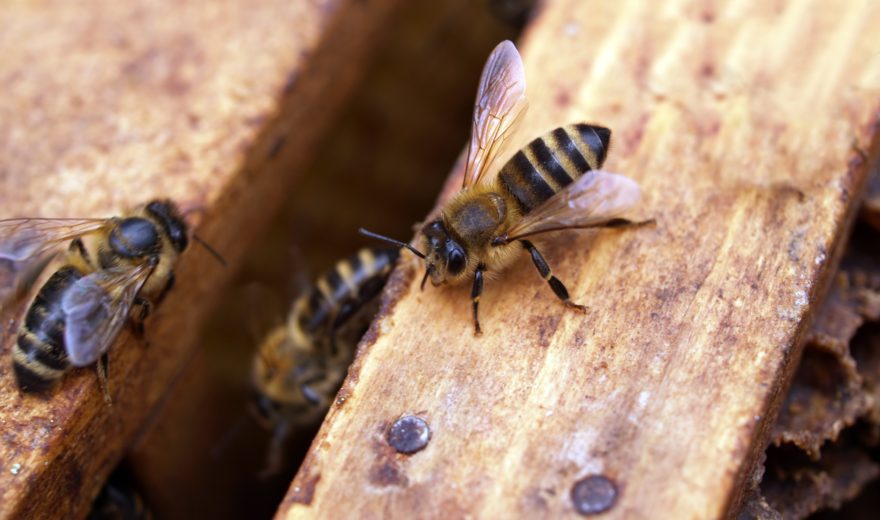
The leaves are changing, there’s a nip in the air, everything you see now comes in “pumpkin spice” flavoring… so this can only mean one thing… Fall is officially upon us and Winter will soon be here.
As beekeepers we need to make sure that our hives are prepared to handle the winter. Surviving the winter is the most stressful period for honeybees. They don’t migrate south for the winter like birds and senior citizens.
Instead, they hunker down and pray for Spring like the rest of us. They don't hibernate; they create their cluster to keep warm anytime the weather falls below 57 degrees.
They produce heat by shivering and continue on with their day eating, rearing brood, and their other daily tasks.
The main four reason bees die over winter are:
- They run out of honey
- There aren't enough bees to maintain the cluster
- The bees' digestive tracks compact with too much waste
- Parasitic mite syndrome

There are a few steps we can take to help our bees survive the cold winter months:
- Adequate supply of honey and pollen (40-60lbs)
- Disease and mite free conditions (medicate if needed)
- Top ventilation to release moist air
- A young queen
- A large population
- Protection from wind
- Maximum sunlight exposure
During the winter months is also a good time to prepare for the next season. This downtime can be used to build or repair any equipment that might be needed for the next season.
I know I’ll be spending my winter getting ready for my first year at bee keeping and trying to decide what type of bees I will have. As always, I recommend the links below to help answer all of your bee issues.
Midwestern Beekeeper’s Association
American Beekeepers Federation
Books:
Beekeeper’s Handbook: - Sammataro, D., & Avitabile, A. (1998). The beekeeper's handbook (4th ed.). Ithaca, NY: Comstock Pub. Associates.
First Lessons in Beekeeping - Delaplane, K. S. (2007). First lessons in beekeeping. Hamilton, IL: Dadant & Sons.

 BACK TO MAIN BLOG
BACK TO MAIN BLOG 
Comment